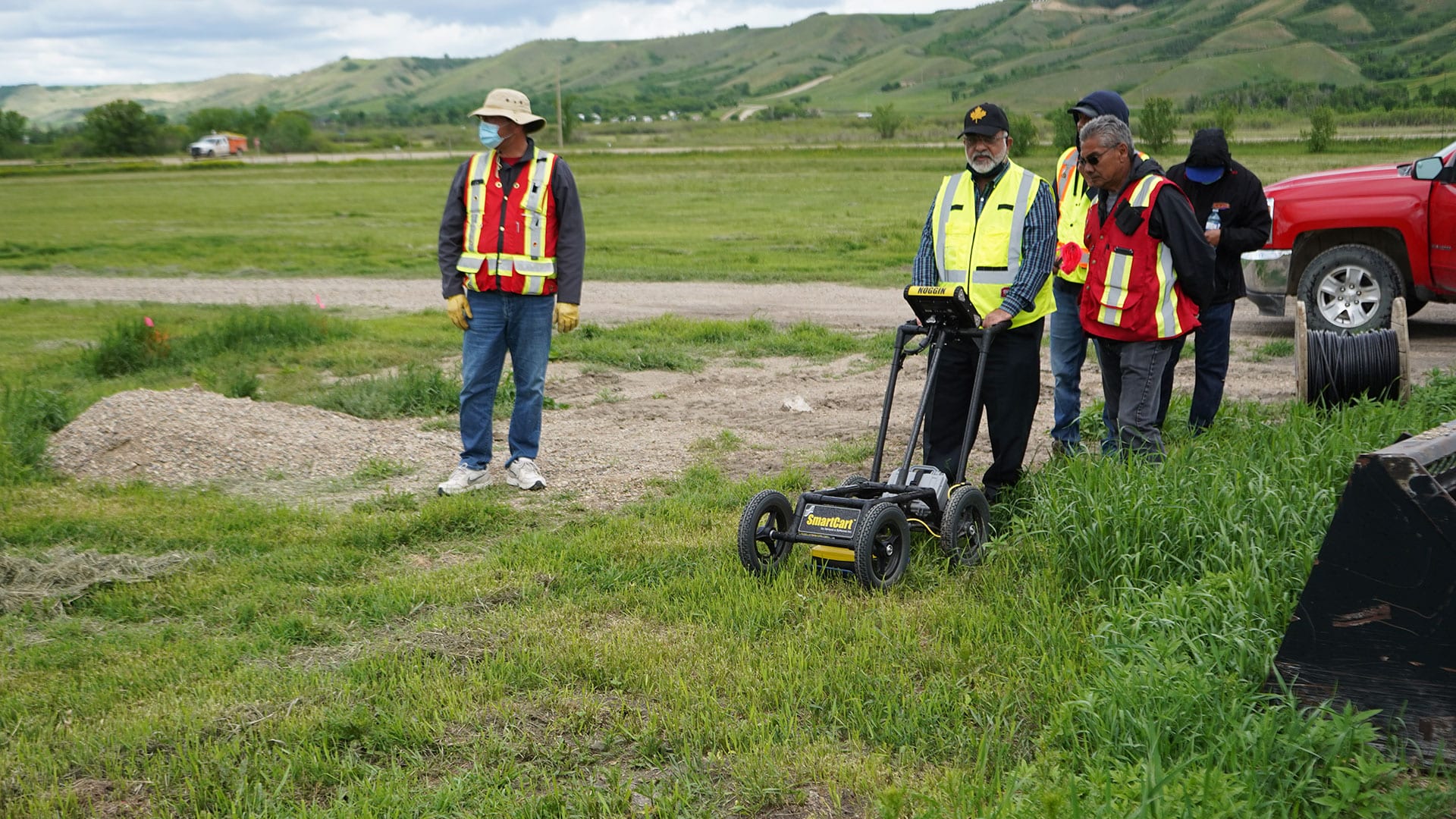
The Marieval Indian Residential School operated from 1899 to 1997, on what became part of the Cowessess First Nation.
The Indian Residential Schools Resolution Health Support Program has a hotline to help residential school survivors and their relatives suffering from trauma invoked by past abuse. The number is 1-866-925-4419.
Cowesses First Nation has put names to about 300 of the 751 unmarked graves it discovered last summer.
Chief Cadmus Delorme said it used historical records from the RCMP, Roman Catholic Church, and Indigenous and Northern Affairs Canada.
It also relied on band members’ oral stories to identify some of the unknown remains.
“It’s progress. It’s relief. It’s validating,” Delorme told CTV News.
The chief was unavailable for an interview with APTN News Friday.

The community of Cree and Saulteaux Peoples east of Regina was the second First Nation to rock Canada last summer by announcing the grim confirmation of unidentified gravesites.
Cowessess said in June it used ground-penetrating radar to comb the cemetery near the former Marieval Indian Residential School, which operated from 1899 to 1997.
The Tk’emlúps te Secwépemc First Nation near Kamloops, B.C., was first to announce the finding of 215 gravesites in May at the site of the former Kamloops Indian Residential School that ran from 1890 to 1969.
Both communities said they used ground-penetrating radar to conduct the searches.
While Tk’emlúps te Secwépemc believes its graves belong to children, Cowessess said its was a community cemetery where Catholic Church parishioners were also buried.
But Cowessess didn’t release anything further about the identities.

Prime Minister Justin Trudeau is expected to visit Tk’emlúps te Secwépemc later this month, after apologizing Wednesday for taking a family vacation on Sept. 30 instead of attending its ceremony for the first National Day for Truth and Reconciliation.
“No words can express the level of grief and sorrow that the confirmation of unmarked graves of missing children from the Kamloops Indian Residential School and other residential schools have brought to Indigenous People across the country,” the statement shared with APTN said.
“We need to work collectively to give Le Estcwéý (the missing) the dignity they never had.”
The statement makes it clear, Tk’emlúps te Secwépemc believes reconciliation with Indigenous Peoples means action.
“Real action and change is needed that supports healing, the revitalization of our language, culture, traditions, and ways of knowing,” the statement added.
“We are not interested in apologies that don’t lead to institutional and widespread change.”
The First Nation also asked Trudeau for the school’s attendance records to help identify remains found at the site and any other missing children.









